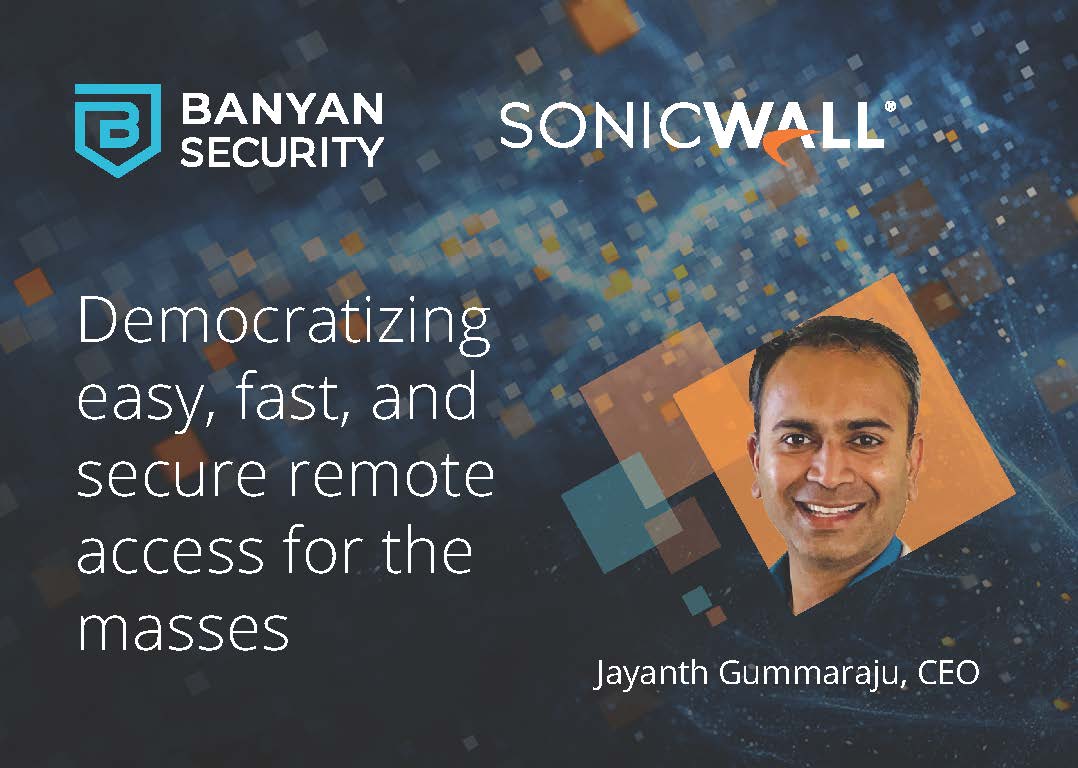Virtual Private Networks (VPN) have been widely used as a solution for secure remote access for decades. However, as organizations have come to rely more fully on remote access as a strategic part of their business, legacy VPNs have been showing their evident shortcomings – significant security weaknesses, inconsistent-to-bad performance, and an often poor end user experience – all while expanded connections between workers, offices, systems and resources have become a requirement. With the shifting security landscape, is it any wonder teams are seeking VPN alternatives?
Legacy VPN security is a big issue.
IDC recently reported that VPNs were used in 68% of major security incidents involving remote access tools. Performance and manageability limitations have also come to the forefront.
Traditional VPNs were not designed to meet the scale, performance, and usability needs of modern and increasingly complex organizations. Today’s enterprise connectivity requirements include secure remote access across their on-premises, hybrid, and multi-cloud environments.
VPNs rely on networking controls such as IP whitelisting and segmentation that generate a significant ongoing workload for IT. They also create a massive security liability in the process as they offer overly-broad access to sensitive corporate assets and infrastructure which permits lateral movement that adversaries can use for ransomware and other malicious activity.
Additionally the modern workforce must be accounted for. Today, the worker population contains a mix of full-time employees, consultants, contractors, partners and other third parties. These non-employees typically use unmanaged (BYOD) devices. Simply setting up yet another VPN for each use case not only is hard to manage, but provides overly-broad access to your networks instead of granular access to specifically-needed resources. In short, secure access to these resources is required from a variety of on-premises and remote locations using a myriad of managed and unmanaged devices.
If this sounds like your situation, it might be time to start looking at VPN alternatives that offer better security, higher performance, easier administration, and provide a user-friendly experience. At the core of VPN alternatives like the Banyan’s Security Platform, is zero trust.
Does Zero Trust Replace VPN?
VPNs, as well as other remote access technologies, can be vulnerable to various security threats and challenges such as misconfigurations, insufficient authentication, and malware infections. To address these challenges, organizations can implement a zero trust security model, which can complement and enhance the security of VPN and other remote access solutions.
Zero trust is not a replacement for VPN. Zero trust is a philosophy as much as it is a security model that assumes that all users, devices, and systems are untrusted until proven otherwise. Implicit trust, based, for example, on the specific network you happen to be using, or the fact that you are on-premises goes away. Instead, multiple security controls to verify the identity and behavior of all users and devices accessing applications and resources.
A Service Edge (SSE) or Zero Trust Network Access (ZTNA) solution provides least privilege access with continuous authorization to applications and services across hybrid- and multi-cloud infrastructure.
What is Stronger Than a VPN?
There is no single technology that is inherently “stronger” than VPN, as the level of security offered by a technology depends on how it is implemented and used.
Legacy network-centric technologies are especially vulnerable to various security threats and challenges such as misconfigurations, insufficient authentication and authorization, and malware infections.
Clearly, simply connecting a user to a network is no longer a sensible approach. When properly adopted, zero trust principles effectively improve the overall security of a given infrastructure, complementing and enhancing an organization’s existing security investments. These principles include:
- Least privilege access creates a secure and encrypted connections between users and the specific applications and resources they need to access, rather than providing access to the entire network like a legacy VPN
- Device identity and security posture to ensure end users only access applications, data, and services from known, trusted devices
- Continuous re-authorization of a user’s trust score to enforce access policy requirements, immediately disconnecting when a user or their device is no longer compliant
- Providing internet threat protection to guard users from being phished, straying onto malicious web sites, or being exposed to ransomware
- Limiting through policy, who, using what specific devices, can access your SaaS applications.
What are some VPN alternatives?
The Banyan Security Platform is an alternative to legacy VPNs, securely connecting users to websites, software-as-a-service (SaaS) applications, private applications, and infrastructure while protecting them from internet threats. Risk and security are continuously evaluated based on the trinity of user and device trust, device security posture, and resource sensitivity. Simply put, Banyan aligns the risk of the request with the sensitivity of the resource, revoking access mid-session if warranted.
Intelligent decisions are made deciding when to use ZTNA vs. VPNaaS, using continuous authorization with device trust (even when accessing SaaS applications), and website reputation and threat risk are assessed when users click on links to protect them from connecting to a potentially malicious link.
A great tool for evaluating solutions is the ZTNA Evaluation Checklist.



